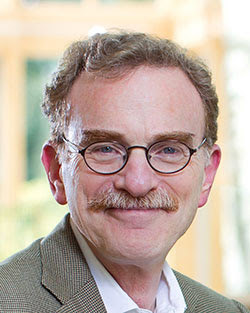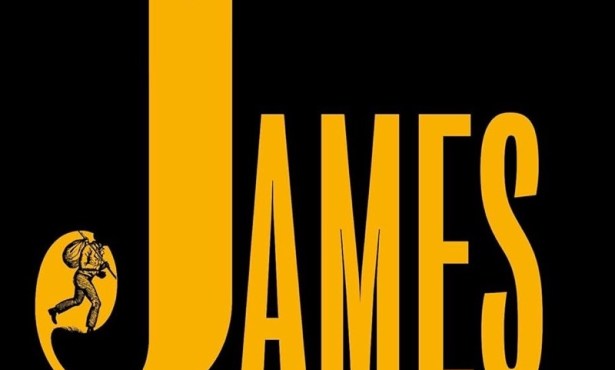Nobel Laureate Discusses Cellular Research
UC-Berkeley Professor Randy Schekman Discusses Prize-Winning Work at New Vic Theater
Scientists and lay people alike crowded into downtown Santa Barbara’s New Vic Theater on Wednesday, August 19, for the 60th Kavli Institute for Theoretical Physics Public Lecture, delivered by Nobel laureate Randy Schekman. In a talk titled “How Cells Package and Traffic Proteins for Export,” the UC-Berkeley professor, who won the 2013 Nobel Prize in Physiology/Medicine, discussed his life work as well as the issues he sees plaguing modern scientific journals.

After kicking off the lecture with his path into the world of science as well as a quick overview of cell biology, the biochemist launched into how he ultimately came to answer the question central to his decades-long career: What are the mechanics by which cells transport vesicles throughout the cell, including to the outside of the cell’s membrane?
Peppering his lecture with humor, Schekman enthusiastically walked his audience through a dense cell biology lesson. Vesicles — packet-like membranes encasing proteins — were known to scuttle through the cells of everything from yeast to the human brain, performing certain functions depending on their contents and often secreting from the cell entirely to perform other functions. By tweaking the genes of yeast cells in the lab, Schekman was able to begin piecing together the molecular mechanisms and chemical catalysts behind the protein-trafficking process, which enable everything from insulin production to the brain’s ability to generate muscle movement.
Understanding these crucial processes — which have been central to the functioning of eukaryotic life on Earth for over a billion years — opened the door for harnessing them, he explained. Soon after his initial discoveries in the ’70s, the biotech industry began using yeast cells in the fight against diabetes and hepatitis B.
“One hundred percent of the world’s supply of recombinant hepatitis B vaccine is made in yeast,” said Schekman. “And since hepatitis B infection is the major factor in the development of liver cancer, the hepatitis B vaccine is considered the first anti-cancer vaccine.”
“One-third of the world’s supply of human recombinant insulin for treatment of diabetics is made by secretion in yeast,” he later added.
Working out the process of how vesicles leave brain cells’ membranes has major implications for battling Alzheimer’s disease as well, he explained.
“Understanding how and when these come into contact and how they may make some kind of illegitimate contact in this secretory pathway is, I think, at the basis of Alzheimer’s disease,” he said in a post-lecture interview. “So understanding that to the point where one could control it might be a way to prevent or treat the disease at its earliest stages.”
The Nobel laureate concluded his lecture with a topic his elevated platform has enabled him to more effectively tackle: the degrading effects on science that he sees major publications such as Nature and Science facilitate by employing a commercial model of operation rather than a merit-based one.
“In order to sell these magazines,” he said, “the professional editors who run these journals look for articles that are submitted that they think are going to generate a lot of buzz, that are going to generate a lot of excitement, that will make headlines in newspapers.”
In response, Schekman founded and is editor-in-chief of eLife, an open-access peer-reviewed journal for life science and biomedicine that seeks to “take back control of the scientific literature from the professional editors who are in the business of selling magazines.”
Schekman was educated at UCLA and received his PhD from Stanford, where he studied under another laureate for Physiology/Medicine, Arthur Kornberg. He went on to research at UC-San Diego before moving to UC-Berkeley and later joining the Howard Hughes Medical Institute, a non-profit research organization. Schekman shares his Nobel Prize with collaborators James Rothman of Yale University and Thomas C. Südhof of Stanford University.



